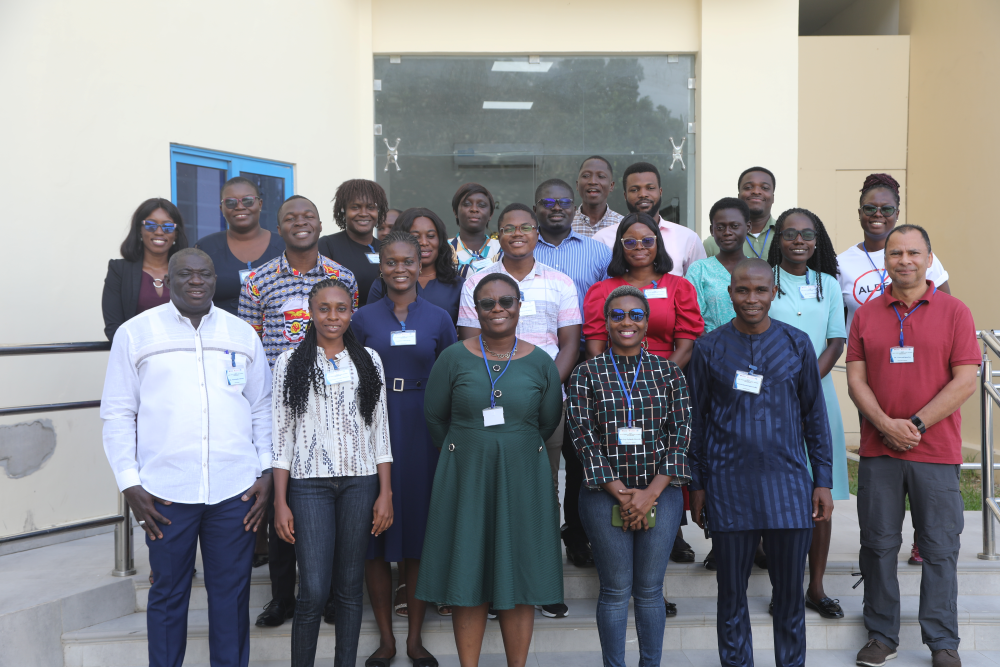Africa Centre of Excellence in Coastal Resilience |  University of Cape Coast
University of Cape Coast
Image
Posted On
Friday, November 1, 2024 - 14:47
Body
The Centre for Coastal Management – Africa Centre of Excellence in Coastal Resilience (ACECoR) at the University of Cape Coast (UCC), Ghana in collaboration with the Centre for Environmental Fisheries and Aquaculture Science (Cefas) in the United Kingdom (UK), has organised West Africa’s first ever Marine Litter Training Programme. This comprehensive training programme funded by UK Government’s Ocean Country Partnership Programme, is made up of three distinct short courses, and is designed to address various aspects of marine litter management.

The training took place from 21st September to 1st November 2024, starting with an initial online self-paced component and ending with a 2-week in-person component at ACECoR, UCC. The programme offered a unique opportunity for participants to gain in-depth knowledge and practical skills in dealing with marine litter issues. Participants included officials from government agencies, Non-governmental Organisations (NGO’s), research institutions, private sector organisations and postgraduate students.
The first course “Marine Litter Monitoring and Assessment (Macro- & Micro Litter)”covered essential topics such as introduction to marine litter, monitoring and assessment techniques for both field and laboratory settings, and data analysis. Participants engaged in practical litter survey exercises, including fieldwork and laboratory analysis, providing hands-on experience in data collection and interpretation. The second course “Socio-economic and Behavioural Research within the Context of Marine Litter,” delved into the human aspects of marine litter. It introduced participants to social science research methods, frameworks for analysing sources, drivers, and impacts of marine litter, and assessment of human behaviour in marine litter management. This course bridged the gap between environmental science and social studies and in turn offered a holistic approach to understanding the marine litter problem. The final course of the programme, "Marine Litter Management - Policy & Interventions" focused on the policy and management aspects of marine litter. It covered the fundamentals of policy processes and methods, existing marine litter policies and interventions, and introduced circular economy principles for marine litter management. A key component of this course was bridging the science-policy gap in marine litter management, equipping participants with the skills to translate scientific findings into effective policy recommendations.
During the two week in-person sessions, participants followed a consistent daily schedule allowing for intensive learning while also providing time for networking and reflection. The programme also employed a variety of teaching methods, including lectures, group discussions, practical exercises and field trips, ensuring a well-rounded learning experience.
One of the programme's strengths was its multidisciplinary approach by bringing together experts from various fields. Instructors included renowned professionals in the field from UCC, Cefas, Cape Peninsula University of Technology (CPUT) in South Africa, Global Ocean Accounts Partnership (GOAP) and Plastic Punch, Ghana among others. Their diverse expertise ensured that participants received a comprehensive understanding of marine litter issues from multiple perspectives.
The training programme also stood out for its balanced mix of theoretical and practical components. Participants not only learned about the latest research and policies but also gained hands-on experience with field surveys and laboratory analysis. The incorporation of modern technologies, such as the use of drones for monitoring, demonstrated the program's commitment to innovative approaches in marine litter management.
By combining scientific monitoring techniques with socio-economic research and policy considerations, the OCPP West Africa Marine Litter Training Programme equipped participants with a holistic understanding of marine litter management. This comprehensive approach enabled participants to return to their respective roles with the knowledge and skills necessary to make meaningful contributions to addressing marine litter issues in their communities and beyond.
Last modified
